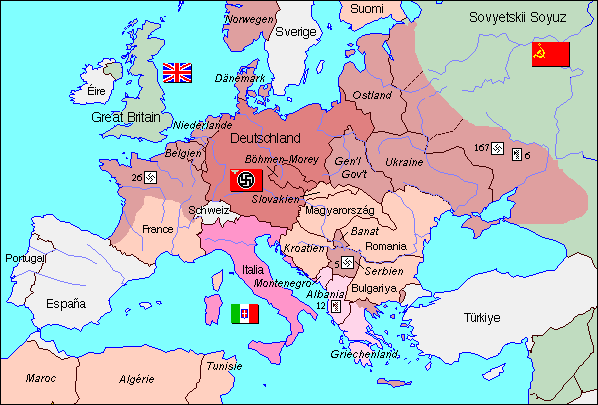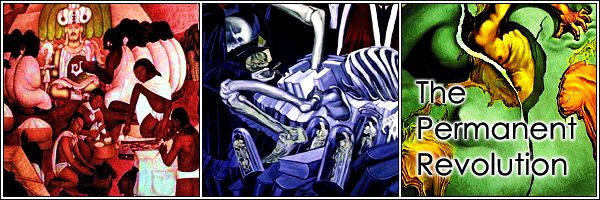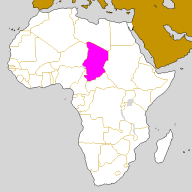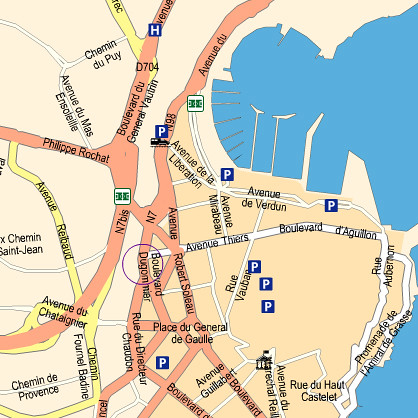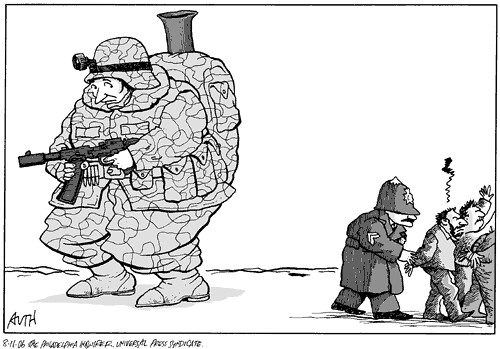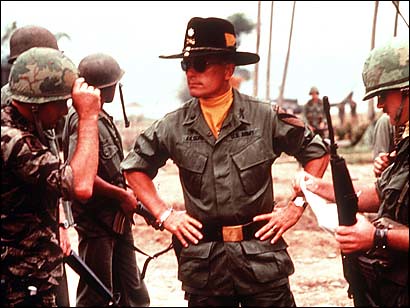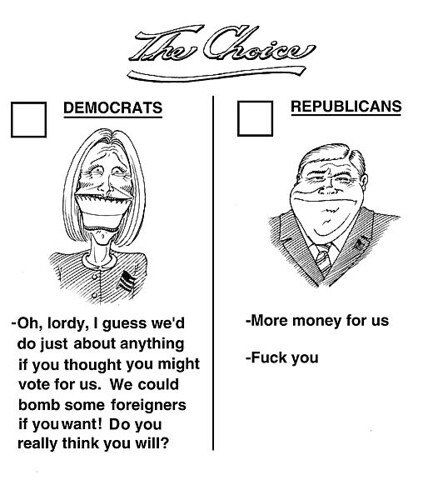Leaders, especially as it becomes clear they're not going to get elected again, tend to get very concerned about their "Legacy". That is, what people are going to say in the history books "such and such was crap, BUT he did do this one good thing towards the end". For French presidents, this usually involves making the French feel important. De Gaulle did it through nukes, arrogant vetoes and
obnoxious theatrics. Mitterrand did it through the Gulf War.
When Saddam invaded Kuwait and the US moved in to defend Saudi Arabia, Mitterrand felt the need to do the same (with a symbolic force of helicopters and boats). When the US changed gear towards an offensive war of liberation (doubling US forces to half a million), so did Mitterrand with the sending of a 11,000 troops. France's military contribution was always paltry, negligeable. But it was important because it helped create the
image of a France actively participating in events which captured the world's attention. By having the biggest Western non-Anglo-American force, France became the leading non-American voice, and used this ability numerous times to offer Saddam more generous peace deals, which virtually all of continental Europe and Arab world agreed to, in exchange for withdrawal from Kuwait (usually involving linking it to a conference on Palestine). With a handful of troops and some vigorous diplomacy, he created the image of a France still capable of shaping History (no doubt contributing to Mitterrand-era nostalgia in France, he has higher post-mortem approval ratings than De Gaulle!).
Chirac may be having his Mitterrand moment in Lebanon. France flexed her diplomatic muscle, drafting with the US a resolution agreed to unanimously, bringing a shaky cease-fire and a call for a multinational force. Given how America, is
somewhat tied up ATM, He implicitly committed France to being a part of that force, but it was never clear if it would be substantial. Yesterday the French apparently almost declared they would grant only a "symbolic" force, until UN officials stopped this for fear of scaring off other contributors. They argue that to get other countries (Italy, Turkey, Pakistan and Malaysia at the top of the list) involved would need France to show real confidence in the force by forming its backbone.
Both France and America have
bad memories of a multinational force in Lebanon. 200 marines died and 50 French soldiers in the 1983 Beirut Barracks bombing. Understandably, Chirac wants to make sure if French troops must go in substantial numbers, that they don't simply take hits from Hezbollah or worse, get caught in the crossfire if the ceasefire breaks down. But it would be rather embarassing, an admission of lack of confidence and abdication, not send a substantial force. So far, France has symbolically doubled her contribution to Lebanon to 400 soldiers. 1700 other troops under French command remain ambiguously off the Lebanese coast. The presence, (in accordance with previous ostantatious French military interventions), has even earned its own name
opération balliste (ballista). However, simultaneously, it
appears that Chirac has made a more substantial contribution contingent on a clarification of the multinational force's mandate, command and rules of engagement.
There could be several reasons behind this. 1) Chirac knows there will not be consensus on the force's role and failure to reach it will be an adequate excuse not to get the French bogged down in Lebanon. 2) Chirac is genuinely concerned that a vague mission will mean France will never be able to leave saying "mission accomplished". No doubt some clarification of command (which will have to be French) and mission would help avoid the kind of trouble we saw last time in Lebanon or in Bosnia and Somalia). 3) Chirac wants to send of a force, but wishes to use the (very plausible) threat of non-intervention to influence the US into accepting a mandate/peace process more favourable to the Arabs.
For now I think 1) is correct (and the
Washington Post seems to have this interpretation). We will see how this plays out, if it is 3), it will have meant the greatest potential expansion of French (and really, non-American Western) influence in the Israeli-Arab peace process since... well perhaps since Mitterrand's diplomacy during the Gulf War. However, more likely, France will not go or will go, and get beaten for it.
(will later discuss email comments)
